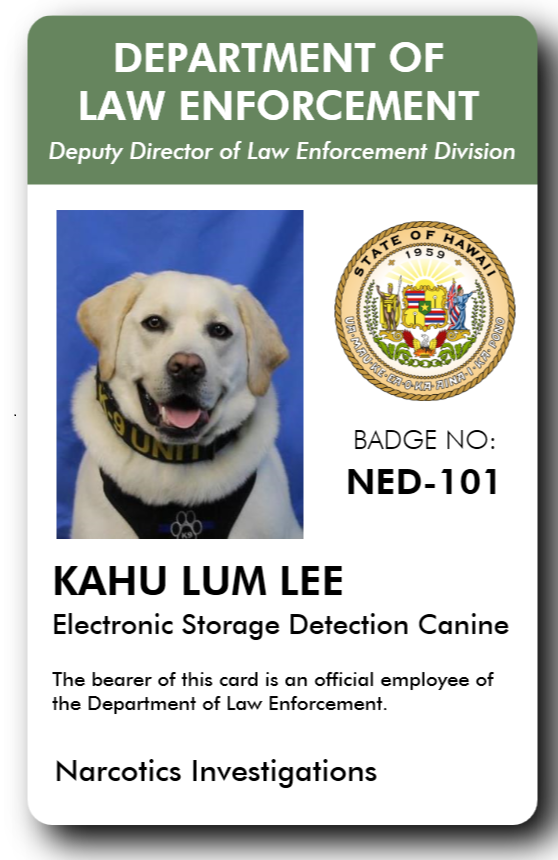Narcotics Enforcement Division


3375 Koapaka Street, Suite D-100
Honolulu, Hawaii 96819
Phone: 837-8470
Fax: 837-8474
E-mail: [email protected]
- HRS 329 (Title 19: Health HRS 329 Uniform Controlled Substances Act)
- HRS 329 D (Title 19: Health HRS 329D Medical Marijuana Dispensary System)
- HRS 712 (Title 37: Hawaii Penal Code HRS 712 Offenses Against Public Health and Morals) Note: Statutes pertaining to OFFENSES RELATED TO DRUGS AND INTOXICATING COMPOUNDS begin with HRS 712-1240
- Title 23 Chapter 200 Administrative Rule: Regulation of Controlled Substances
- Title 23 Chapter 201 Administrative Rule: Regulated Chemicals for the Manufacture of Controlled Substances

K9 Kahu’s main duty is to assist with criminal investigations.
He locates hidden electronic storage devices such as cellular phones, thumb drives, and memory cards.
Facebook: Kahu Lum Lee & ESD K9 Kahu
